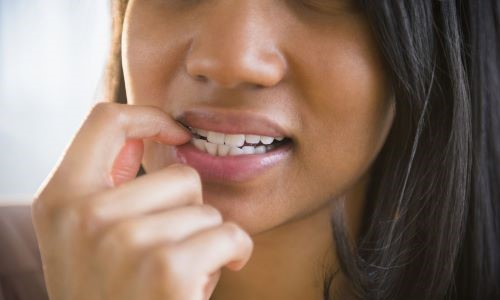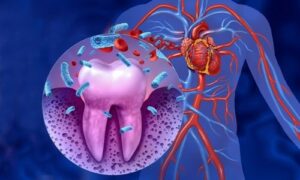We all have habits that we don’t think twice about, but some of these everyday actions could be causing serious harm to our teeth. From chewing ice to biting your nails, certain behaviors can weaken enamel, damage dental work, and lead to long-term oral health problems. Here are five common habits that may be damaging your teeth and tips on how to break them.
1. Chewing Ice
Many people enjoy chewing on ice as a refreshing, calorie-free snack, but it can be very harmful to your teeth. Ice is hard and can cause chips or cracks in your enamel, and may even damage fillings or crowns.
How to Break the Habit: Instead of ice, chew sugar-free gum when you crave something crunchy. Keeping water cold but not icy can also reduce the temptation to chew on ice cubes.
2. Nail Biting
Nail biting not only affects the appearance of your nails but can also cause serious harm to your teeth. The constant pressure from biting can lead to chips or cracks, while the introduction of bacteria from your fingers can increase the risk of infection and gum disease.
How to Break the Habit: Keep your nails trimmed short and use bitter-tasting nail polish designed to deter biting. Find stress-relief alternatives like a stress ball or practice mindfulness to reduce the urge to bite.
3. Using Teeth as Tools
Many people use their teeth to open packages, hold objects, or even crack nuts. This puts undue stress on your teeth and can lead to chipping, cracking, or even tooth fractures.
How to Break the Habit: Always have proper tools like scissors or bottle openers readily available so you’re not tempted to use your teeth. Remind yourself that teeth are meant for chewing food, not as multi-purpose tools.
4. Teeth Grinding (Bruxism)
Grinding your teeth, especially at night, can wear down enamel, cause tooth sensitivity, and even lead to jaw pain or headaches. This habit often goes unnoticed until the damage is already done.
How to Break the Habit: If you suspect you grind your teeth, consult your dentist about wearing a custom-made nightguard to protect your teeth while you sleep. Reducing stress and practicing relaxation techniques before bed can also help minimize grinding.
5. Drinking Sugary or Acidic Beverages
Constantly sipping on sodas, sports drinks, or fruit juices can lead to enamel erosion and cavities due to their high sugar and acid content. Even “diet” sodas are acidic enough to damage your teeth over time.
How to Break the Habit: Limit your intake of sugary and acidic drinks, and opt for water or milk instead. If you do indulge, use a straw to minimize contact with your teeth and rinse your mouth with water afterward.
Breaking these common habits can go a long way in preserving your dental health. By being mindful of these behaviors and replacing them with healthier alternatives, you can prevent long-term damage to your teeth and maintain a strong, healthy smile. If you’re unsure whether your habits are harming your teeth, consult your dentist for personalized advice and tips.












